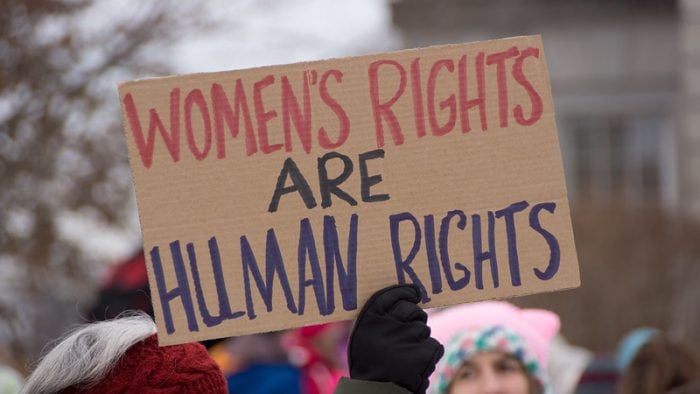Since 1848, women have been banding together to receive the same respect and opportunities that men have received for centuries upon centuries before them.
The right to vote, the right to equal wages, the right to be seen as human beings and not just reproductive tools.
In 1848, the first women’s rights convention was held in Seneca Falls, New York. It was the beginning of a fight that women are still fighting today.
August 26th is the date that was selected to commemorate a women’s right to vote—a right that wasn’t granted to women until 1920.
I am a humanist. This means that I advocate for the principles of human needs and seek rational ways to solve human problems. I see us all as a whole.
Equality is defined as “the state of being equal, especially in status, rights, and opportunities.” This is where my stance on the subject of women’s rights gets unconventional and blurry because, essentially, I stand balancing on both sides of the fence.
We are all one race and we all should be respected as such.
I believe that each and every one of us is born with freedom of choice and that each of us contributes to different parts of humanity as a whole.
I believe that being a woman doesn’t require me to submit to a man (to me, that concept is complete and utter bullsh*t). I will never let a man treat me as if I am beneath him.
My body belongs to me.
I will not let a man tell me when I can and cannot have babies.
I will not let a male-dominated society tell me what I’m going to wear or let one think that it’s okay to touch me without my permission.
I am intelligent; challenge me and I will show you that your power trip isn’t enough to win against me.
I have faced every single one of these situations and then some ever since my body took a woman’s form.
Due to the definition of equality, however, feminine biological differences are no longer considered sacred nor respected, especially in the workplace.
To give only one example, the female body goes through changes every month. My natural being as a woman goes through cycles that a man’s body does not. Yet, as women with equal rights, we are expected to live up to the standard of a man’s body that does not experience the same changes.
Some women get physically sick over their monthly shedding and yet women are given neither the time nor space to let our female bodies do what they are naturally supposed to do without the added pressure and concern of sacrificing their position and work ethic.
So, how far can equality really go? Can we balance equality and biological differences?
Society shows that that’s a difficult concept for many to accept. Everything has to be black or white, all or nothing, one or the other.
Now, let’s not forget that women have natural maternal instincts to care for children and nurture our families, or that men, too, possess the same qualities and deserve the same respect.
A friend of mine put it perfectly when I asked for thoughts about women’s rights. He said:
“Add five and seven. What do you get? 12. Now add 10 and two. Still 12. Six and six? You get the idea. All these numbers are different, but they equal the same value. No reason we can’t be different but be treated the same. I agree the all-or-nothing stuff is annoying. It’s like now we have to pretend that men and women aren’t different? Of course we are, but that’s what’s wonderful, we all have our strengths and weaknesses, and people forget the most important thing of all: balance.”
I’m here to remind you while celebrating this glorious day of women’s rights, that when we ask for equality, we ask to be respected at an equally high standard as men have been for centuries: in our own way—the way that celebrates women as human beings essential to the balance yet capable and deserving of more than previously seen fit.
We ask for freedom of choice, and we ask for respect.
Human rights are women’s rights, and women’s rights are human rights.
“So long as women continue to live in fear, bear the brunt of austerity, and are excluded from decision-making to make life better for themselves and future generations, women and their allies will march.” ~ Jane Arscott
~












Read 13 comments and reply